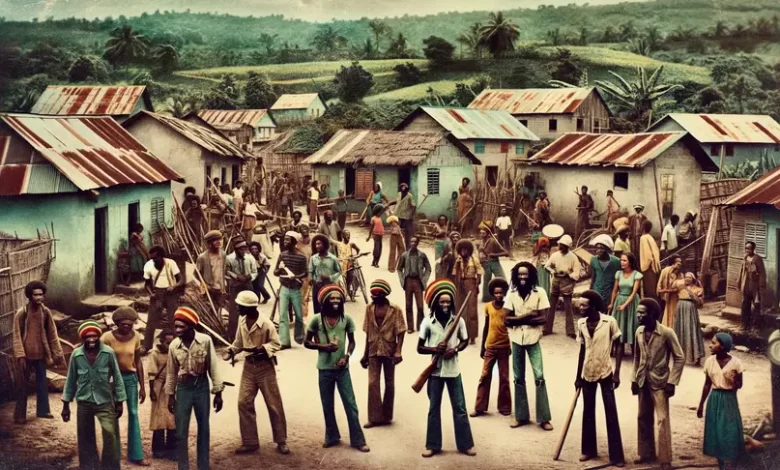Geneva Uprising

The Geneva Uprising on March 11, 1974, was a transformative event in the South of Dominica, particularly in the village of Grand Bay. This uprising symbolized the local community’s struggle against established landownership and socio-economic disparities. Led by Phillip Francis, also known as Unicef, the uprising significantly reshaped the future of Grand Bay and left a lasting impact on the region’s socio-political landscape.
Background of the Geneva Uprising
The Geneva Uprising began in February 1974 and culminated in May of the same year. Long-standing tensions between the local inhabitants of Grand Bay and Elias Nassief, a Lebanese-born businessman and owner of the Geneva Estate, fueled the conflict. Nassief’s control over the Geneva Estate was a major source of contention, mainly because his business ventures in the coconut industry were seen as benefiting only a tiny elite while marginalizing the local community.
The Role of Dominica’s Government and the Escalation of the Conflict
As the uprising gained momentum, the local population, frustrated by years of socio-economic oppression, took decisive action. They burned estate houses, slaughtered livestock, and destroyed crops, forcing Nassief to flee the region. This marked a turning point in the uprising, prompting the Dominica Government to intervene. The government’s acquisition of the Geneva Estate was a landmark decision facilitating land redistribution to the local community. This move was crucial in empowering the residents of Grand Bay, enabling them to engage in farming and housing development, thereby significantly altering the socio-economic landscape of the South of Dominica.
Impact and Legacy
The Geneva Uprising is remembered as a pivotal moment in Dominica’s history, particularly for its role in challenging established power structures and advocating for the rights of marginalized communities. The uprising not only reshaped the future of Grand Bay but also had broader implications for the entire South of Dominica. It highlighted the need for socio-economic reforms and played a crucial role in the ongoing efforts to address landownership and economic disparities on the island.
Today, the Geneva Uprising is commemorated as a symbol of resistance and community empowerment. It is a significant part of Dominica’s historical narrative, especially in the context of Dominica’s Government and its role in facilitating land redistribution and promoting social justice. The uprising’s legacy continues to inspire discussions about land rights, socio-economic equity, and the role of government in addressing these critical issues.
For those interested in a more detailed exploration of this event, the resource “Grand Bay: the 1974 Geneva Uprising, from Bala to Unicef” by Paul Alexander provides comprehensive insights into the Geneva Uprising and its lasting impact on Dominica’s history




